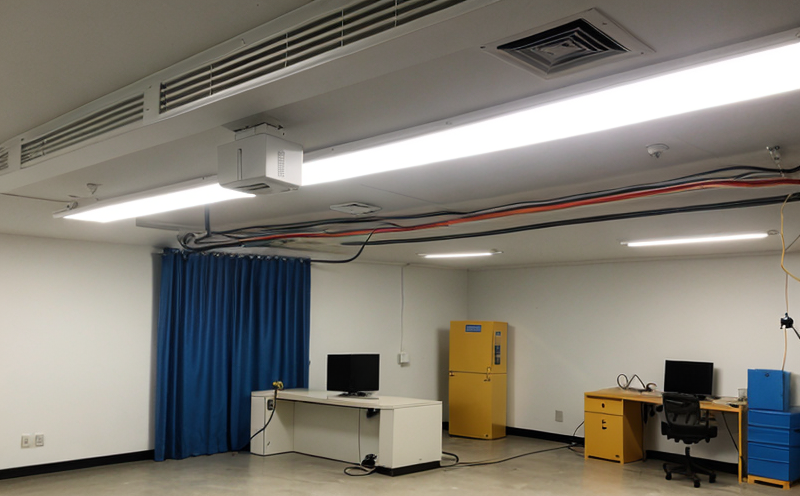IEC 60947 Low Voltage Switchgear
The IEC 60947 standard series is a comprehensive set of guidelines that cover the design, manufacture, and testing of low voltage switchgear. This standard ensures that all electrical equipment meets stringent safety and performance requirements. The tests under this standard are critical for verifying the reliability and functionality of switchgear in various applications.
The IEC 60947 Low Voltage Switchgear series includes multiple parts addressing different aspects of switchgear design, including operation, construction, and testing. Particular emphasis is placed on ensuring that products meet the demands of modern electrical systems while maintaining a high level of safety for users and operators.
Switchgear plays a crucial role in power distribution networks by switching, protecting, controlling, and isolating circuits. Testing according to IEC 60947 ensures that switchgear functions correctly under specified conditions, enhancing the overall reliability and safety of electrical installations. This testing is essential for quality managers, compliance officers, R&D engineers, and procurement teams who are responsible for ensuring product integrity.
The tests performed under this standard include a wide range of checks such as mechanical strength verification, insulation resistance measurement, moisture intrusion tests, and many more. These tests ensure that the switchgear can withstand environmental conditions, including humidity, temperature variations, and dust levels common in industrial settings. Compliance with IEC 60947 is mandatory for manufacturers seeking to sell their products globally.
The standard covers various types of low voltage switchgear, such as circuit breakers, contactors, relays, and motor protection devices. Each type has its specific testing requirements that ensure they meet the necessary standards for safety and performance. For instance, circuit breakers are tested to verify their ability to interrupt fault currents safely without damage.
In summary, IEC 60947 Low Voltage Switchgear is a critical standard ensuring the integrity and reliability of electrical equipment in industrial settings. It provides a robust framework for testing that guarantees compliance with international safety regulations. This ensures not only the protection of operators but also enhances the efficiency and longevity of electrical installations.
| Standard Number | Title |
|---|---|
| IEC 60947-1 | General Requirements for AC Systems up to and including 1 kV |
| IEC 60947-2 | Special Requirements for AC Systems up to and including 1 kV |
Applied Standards
The application of IEC standards is crucial in ensuring that electrical equipment meets the necessary safety and performance criteria. The specific parts of the standard series relevant to this testing include:
IEC 60947-1: General Requirements for AC Systems up to and including 1 kV covers the basic requirements for low voltage switchgear. These requirements encompass design, construction, marking, test conditions, and performance parameters.
The standard specifies that all products must undergo rigorous testing before being deemed compliant with IEC 60947-1. This includes tests for mechanical strength, electrical insulation resistance, moisture intrusion, and many others. Compliance ensures that the switchgear can operate safely and efficiently in a wide range of environments.
| Standard Number | Title |
|---|---|
| IEC 60947-2: Special Requirements for AC Systems up to and including 1 kV | Special Requirements for AC Systems up to and including 1 kV |
| IEC 60947-3: Switchgear and Controlgear - Part 3: Special requirements for control gear of AC systems up to and including 1 kV | Switchgear and Controlgear - Part 3: Special requirements for control gear of AC systems up to and including 1 kV |
Benefits
The benefits of testing switchgear according to IEC 60947 are numerous. Firstly, it ensures that the equipment meets stringent safety and performance requirements, reducing the risk of accidents and malfunctions. Secondly, compliance with this standard enhances the reliability and longevity of electrical installations, leading to lower maintenance costs over time.
Testing also helps manufacturers meet international standards, which is essential for exporting products globally. This ensures that all equipment meets the necessary safety regulations in different markets, simplifying the process of doing business internationally. Moreover, compliance with IEC 60947 can improve a company's reputation and trust among customers who value high-quality, reliable electrical systems.
Testing according to this standard also ensures that switchgear can operate efficiently under various environmental conditions. This includes exposure to moisture, temperature variations, and dust levels common in industrial settings. By ensuring the equipment meets these standards, testing enhances the overall performance of electrical installations, leading to better operational efficiency and reduced downtime.
In summary, testing according to IEC 60947 Low Voltage Switchgear provides numerous benefits that enhance safety, reliability, and efficiency. It ensures compliance with international standards, reduces risks, and improves a company's reputation among customers.
Why Choose This Test
Selecting the appropriate testing method is crucial for ensuring that electrical equipment meets all necessary safety and performance criteria. Testing according to IEC 60947 Low Voltage Switchgear offers several advantages over other testing methods:
Comprehensive Coverage: This standard provides a comprehensive set of guidelines covering the design, manufacture, and testing of low voltage switchgear. It ensures that all aspects of the equipment are thoroughly tested to meet international safety standards.
International Recognition: Compliance with IEC 60947 is widely recognized in many countries around the world. This means that products tested according to this standard can be sold globally without additional testing, simplifying the process of doing business internationally.
Enhanced Reliability and Safety: Testing ensures that switchgear operates safely and efficiently under various environmental conditions. This reduces the risk of accidents and malfunctions, enhancing the overall safety and reliability of electrical installations.
Cost-Effective in the Long Term: While testing may require an initial investment, it can significantly reduce long-term costs by reducing maintenance and downtime. Reliable equipment leads to better operational efficiency, resulting in cost savings over time.
In summary, choosing IEC 60947 Low Voltage Switchgear for testing ensures that switchgear meets all necessary safety and performance criteria. This provides numerous benefits, including enhanced reliability, international recognition, and long-term cost-effectiveness.





